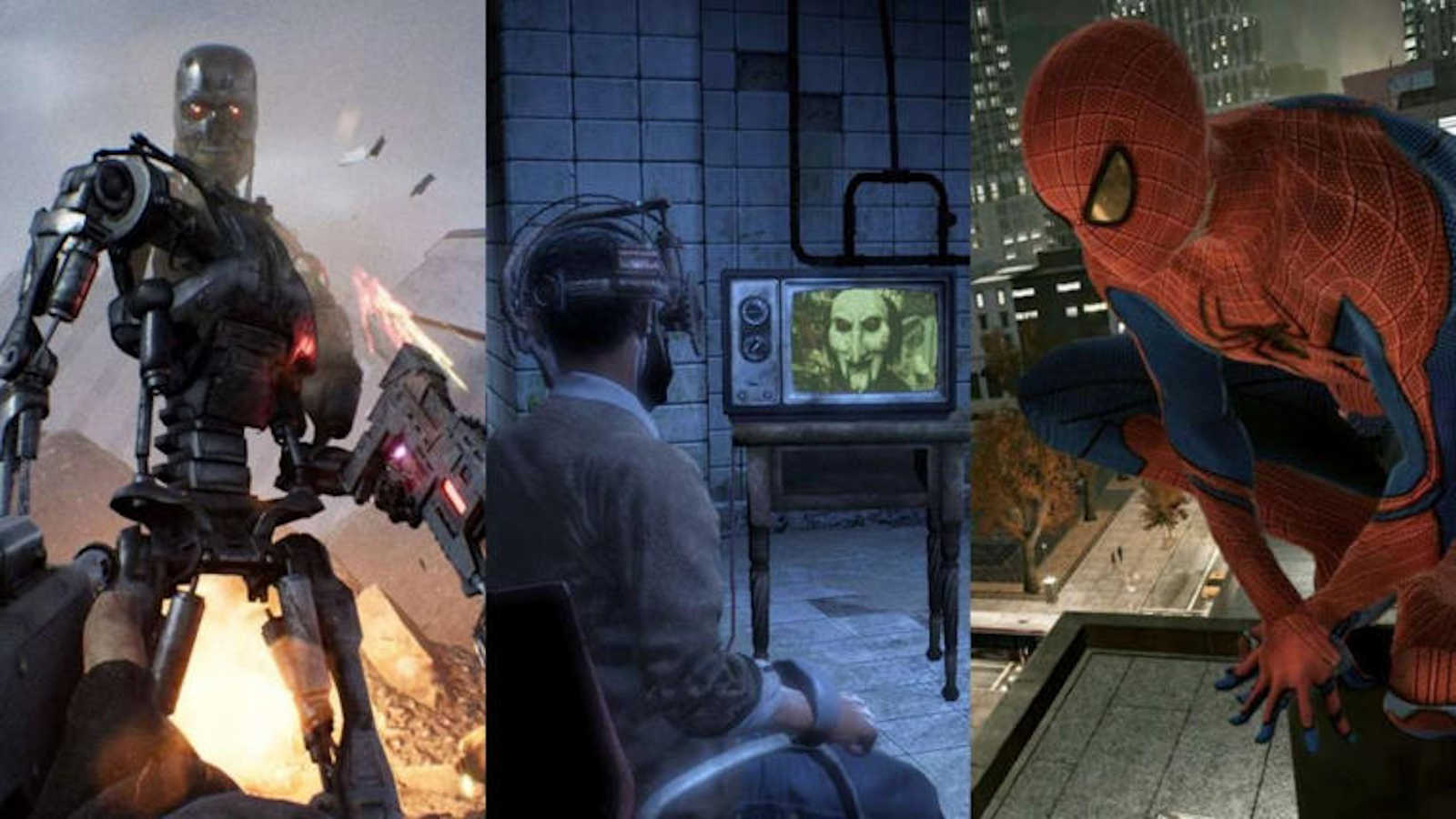
The entertainment industry has witnessed a symbiotic relationship between movies and video games for decades. From the early adaptations of arcade classics like “Pac-Man” and “Donkey Kong” to the immersive cinematic experiences of “The Last of Us” and “Uncharted,” these two worlds have converged to offer fans a variety of ways to enjoy their favorite stories. However, in recent years, the trend of creating video games based on movies is on the decline and more than a decade ago they were very common, as they were released right after the cinematic installments. While there are still some notable releases, they’re not usually inspired by movies, but by comics and books, so the golden age of mainstream adaptations seems to be behind us. There are several reasons for this, and we explain them all in this article.
SEE ALSO:
- A few days ago, Microsoft shut down four video game studios: now it has opened one
- Video Games: A School to Learn About Digital Payments (With Some Risks)
- PlayStation intends to create its own platform for mobile devices, according to this job posting
Increased development expenses and times changed the video game industry

The golden age of movie-based games is over for a number of reasons.
Creating a quality video game requires a significant investment of time and resources. A modern AAA title can have a budget of hundreds of millions of dollars and take years to complete. In contrast, films, while also expensive, generally have shorter production cycles. This imbalance in time and money investment means that game studios need to be confident that an adaptation will be commercially successful to justify the expense. That is, the stakes are high and the margin for error is small. In the past, video games based on movies were a rarity and therefore generated a lot of buzz. However, at present, the market is flooded with licensed games, which has led to consumer fatigue over the past decade. In fact, audiences now have a wide variety of options to choose from and aren’t always willing to pay for a game based on a movie that they might not be interested in. This has made it more difficult for video game studios to get a return on investment in adaptations, so they decide to focus on creating AAA titles with unique plots that attract attention, since nowadays it is not the quantity, but the quality, that matters.
Video games now have a place in the cinematic world

Several games with movie licenses were successful at the time.
Another relevant thing in this regard is that film studios, owners of the intellectual properties that are adapted, often exert significant control over the video game development process. This can lead to creative conflicts and delays, as the visions of developers and studio executives don’t always match. A notable example is the adaptation of “Aliens: Colonial Marines.” The game’s development was plagued by problems, including drastic changes to the story and gameplay, resulting in a disappointing final product that received negative reviews from fans and critics alike. Movies and video games are two distinct forms of entertainment with different languages and narrative structures. As for cinematic installments, they are passive experiences that tell a linear story, while video games feature interaction actions that allow players to make decisions and explore worlds in various ways and categories. Currently, instead of making a video game inspired by a movie, it is the other way around, the industry has evolved to bring something new, the movies and live action series that adapt video games, such as The Last of Us, Halo, Fallout, Borderlands and many more that are having a worldwide impact.
Mobile games are now a cheaper option for adapting movies and series

Ice Age features several video games based on the movies.
The mobile gaming industry has seen explosive growth in recent years, leading many video game studios to focus their efforts on this market. In effect, they are cheaper and faster to develop, while they can reach a much wider audience than traditional console games. This has made it less attractive for studios to invest in high-stakes and high-priced film adaptations. Despite these challenges, there is still hope for the future of these types of games. Studies that can overcome the above-mentioned obstacles and create innovative, high-quality adaptations can succeed in this market. Here are some examples of successful adaptations:
- The Witcher 3: Wild Hunt (based on the fantasy novel series).
- Batman: Arkham Asylum (based on the comic book series).
- Hogwarts Legacy (based on Harry Potter books and films).
- Marvel’s Avengers (based on comic books and animated series with original story).
- The Expanse: A Telltale Series (based on the series).
The games on this list prove that it’s possible to create video game adaptations that are true to the original source and offer an engaging and rewarding gaming experience. Likewise, it’s clear that the era of low-effort, low-quality movie adaptations is over. Today’s fans demand more sophisticated and creative experiences, such as those in Cyberpunk 2077, Red Dead Redmeption 2 and the like, so the studios that can meet these expectations will be the ones to thrive in this challenging market.



Comments